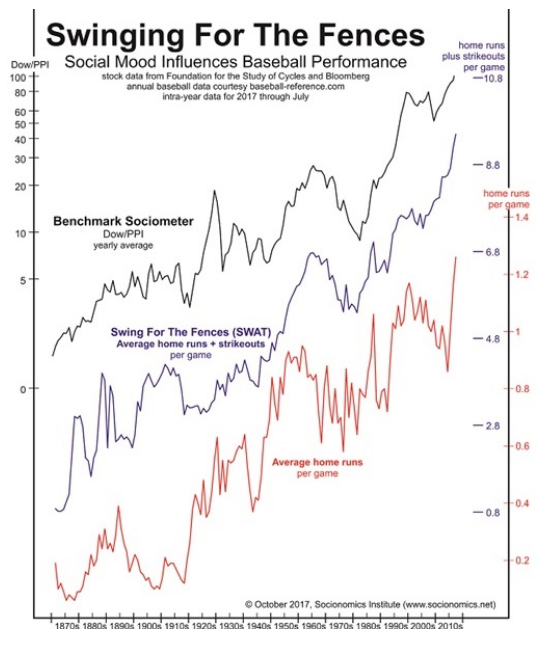The Libor Scapegoat
In July some big financial news was made that normal folks probably didn’t hear or care about. An organization no one has ever heard of, the Financial Conduct Authority, revealed something mostly unknown, Libor, the London interbank offered rate, is to be phased out in 2021.
This esoteric rate is not determined by price discovery but instead by low-level employees at big banks. Alex Katsomitros writes for World Finance,
Everyday, bank panels around the globe – one for each major currency – submit an estimation of the interest rate they charge to lend to one another, backed up by transaction data. This interest rate underpins a wide range of financial products, from futures and derivatives to mortgages, worth at least $450trn.
So bankers who have trillions in derivative bets dependent on the direction of Libor, participate in the setting of the rate. What could go wrong? Readers may have read about a certain scandal with big banks paying big fines for manipulating the rate.
Whether consumers know it or not, according to Bankrate.com in 2012, $10 trillion in mortgages, consumer and student loans were tied to Libor.
While most banks were in on the rate skullduggery and senior management knew all about it, to the extent heads of money center banks know the particulars of Libor and derivative arcania, regulators and the courts got their pound of flesh from just one man, Tom Hayes, who today sits in a maximum security prison outside of London.
His erratic story is told by the Wall Street Journal’s David Enrich in, “The Spider Network: The Wild Story of a Math Genius, a Gang of Backstabbing Bankers, and One of the Greatest Scams in Financial History.”
What makes the book work, at least for financial history geeks like me, is Enrich’s access to the primary character. He received a text from Tom Hayes in 2013 when Hayes was charged with being the mastermind behind the Libor scandal and the naive, mildly autistic banker did what no defendant should ever do; talk to a reporter. Enrich had so much access to Hayes and Hayes’s wife, the reader is provided a deskside seat to Libor fixing from Tokyo to London; which isn’t all that interesting. However, the quirky Hayes is. His nicknames at the bank was “Rain Man” and “Kid Asperger.”
When the authorities came to arrest him for manipulating Libor, “The officer pronounced it ‘lee-bore.’ Hayes couldn’t help himself. ‘You mean LIE-bore?’ he blurted, correcting the officer’s pronunciation,” Enrich writes. Hayes honestly thought misplacing his lucky t-shirt was the real reason he was arrested.
On the WSJ MoneyBeat podcast Paul Vigna and Stephen Grocer interview the author and tell him the book reads like a novel. If “The Spider Network” was a novel, John Grisham would tell him he introduced too many characters--his cast is seven pages long. Most of these bankers, using Enrich’s description, “were an unremarkable bunch.” The author calls Hayes’s counterparts as “the proletariats of banking, young infantry toiling away for the benefits of their institutions and, in many cases, their institutions’ lavishly paid senior executives.”
These finance everymen “were entering into a partnership...that embodied greed, recklessness, and hubris--in essence, everything that made Wall Street evil.” Okay. However, London psychologist, Alison Beck diagnosed Hayes, the supposed mastermind behind something that had been going on well before he entered the industry, as having a mild form of Asperger’s syndrome. Enrich quotes Ms. Beck,
Mr. Hayes does not perceive the world as people without Asperger’s Syndrome do...It is consistent with a diagnosis of AS that if manipulation of Libor existed both before and after Mr. Hayes’ employment in the market, then he is likely to have simply regarded it as acceptable practice…
Hayes saw no grey area, morally or otherwise. If everyone did it, and he could use his math skills and temper tantrums to exploit the system to earn profits for his employer, he was not only not doing anything wrong, but was excelling on the job. Indeed, he did, as top banks from around the world bid for his services.
As for the regulators, in 2009 the Commodity Futures Trading Commission (CFTC) sent a letter to Citigroup in London asking “How did Libor work? “How did banks figure out the data they submitted every day?” and other rudimentary questions. That didn’t keep the head of the CFTC, Gary Gensler, from falsely taking credit for initiating the Libor investigation even though it had been underway for a year before his installation at the agency.
A little nugget in Enrich’s book is the story of Thomas Youle, who was pursuing a doctorate at the University of Minnesota. He needed a topic for his doctoral thesis. He stumbled on the idea of researching the setting of Libor. His work determined, “banks [were] trying to push the benchmark in very specific directions.” His advisor urged him to complete his work as quickly as possible. Surely, an academic journal would be eager to publish the 30-page paper.
Not hardly. A Journal of Finance editor was ruthless in his denial. “This is ridiculous,” the editor wrote. “Even if it’s true, who would care?” No academic journal was interested.
That’s the question. Libor was manipulated for millions in profit, moving Libor a basis point lower or higher. However, who cares? Ask the average person on the street to name the greatest financial scandals, I doubt many would name the Libor scandal before they mentioned Bernie Madoff, Enron, Worldcom, or the ‘08 financial crash.
But Enrich tells a heck of a story, that should be entitled “The Scapegoat.”







